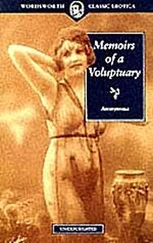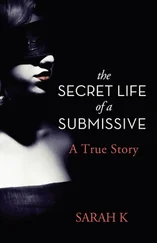A controversy exploded years later over this raid as a result of a retrospective report about it in Confidential magazine. In February 1957 the sensational magazine would publish a story entitled “The Real Reason for Marilyn Monroe’s Divorce from Joe DiMaggio.” As a result, the California State Senate Investigating Committee would begin a probe to determine just how those kinds of stories about celebrities were leaked to scandal publications, and what the practices of certain unethical private detectives had to do with any of it. As part of the investigation, Sinatra would be called to testify about his participation in the raid. Of course, he was furious about being dragged into any investigation by the media. He despised publications like Confidential and could not have cared any less how its reporters gathered their information. Though he wanted nothing to do with any of it, he was still compelled to testify.
Under oath, Sinatra swore that he had only driven Joe DiMaggio to the scene of the break-in, where they then met two private detectives who had been hired by DiMaggio to keep Marilyn under surveillance. Frank lied and claimed that while he stood by his car having a smoke, DiMaggio, Sanicola, Karen, and the two private investigators broke into the wrong apartment. DiMaggio, though, insisted that he didn’t break into the apartment either. In fact, eventually all of the principal players began denying involvement in the raid, as if none of it had ever occurred and it was all a figment of someone’s wild imagination. Because of so much conflicting testimony, a grand jury convened and compelled Frank to testify again. He had his story, though, and he was sticking to it. He didn’t change a word, except to add that, yes, he did pay the $800 for the surveillance. He had to admit this much, because the detective agency presented his check as evidence. However, he said he had only advanced the money for DiMaggio, and was paid back by him. Everyone was lying about this event, though, it would seem—even Sheila Stewart Renour, whose apartment Hal Schaeffer and Monroe were using for their assignation. She claimed that it was she, not Hal, who was in the apartment with Marilyn. Unless she was watching TV while the other two were in the bedroom, then she was lying under oath, too. The notion of perjury didn’t seem to mean much to any of these witnesses.
One more postscript to “The Wrong Door Raid”: This ridiculous bit of business marked the end of Frank Sinatra’s friendship with Joe DiMaggio. It rankled Sinatra that since he was a Los Angeles resident he was forced to spend hours testifying in a Los Angeles courtroom while DiMaggio, a Florida resident, was not compelled to testify. Sinatra had to bear the brunt of the investigation, whereas DiMaggio was able to walk away from it with nary a problem—especially galling to Sinatra since he had orchestrated the whole matter as a favor to DiMaggio.
Marilyn in New York
I t was time for a change. After her marriage to Joe DiMaggio, Marilyn felt engulfed by so much sadness and confusion that she would say she believed she had no one to whom she could turn. She missed her Aunt Grace terribly. It seemed that everywhere she looked in Los Angeles, there were memories of Grace. Though she and her half sister, Berniece, were close, it was really a telephonic relationship. There was only so much she felt she could explain under those circumstances. Moreover, Berniece had her own family and her own problems as well. Marilyn didn’t want to burden her. As for Natasha Lytess, she was so possessive of Marilyn it had become impossible to be around her without the outbreak of some kind of turmoil. She wanted to direct Marilyn not only on the soundstage, but also in her life. It was exhausting work trying to placate Natasha. On one hand, Marilyn was fed up with her. On the other, Natasha had seen to it that her student had become so dependent on her, Marilyn wasn’t even sure she could act without her. Hal Schaeffer was a kind and understanding man, but he’d just been a temporary diversion. The Wrong Door Raid had been embarrassing to Marilyn and she could barely face Hal after it; she felt that she brought chaos into the lives of anyone who came into her world. Meanwhile, she was being bombarded by letters from her mother, Gladys. They were showing up almost every day—pleadings for Marilyn to secure her release, along with books and pamphlets on Christian Science.
In November 1954, Marilyn went into the hospital to have an operation intended to solve her painful problems with endometriosis. She wasn’t sure it would be successful, but she knew she had to try because the condition had just gotten worse in the last year. After she was released, she made an important decision: She was moving to New York. Manhattan promised new vistas for Marilyn Monroe, a fresh start. She would move into the Gladstone Hotel, meet new friends, go to the theater, and enjoy the freedom of a new and exciting environment.
On January 7, 1955, Marilyn held court at a major press conference to announce her future plans, begin a new phase in her career. As eighty members of the media feverishly took notes and photographs—and she did look stunning in a white satin dress and matching ermine coat, her hair now platinum—she formally announced the establishment of a new company. She and her friend photographer Milton Greene, were starting a new production company, Marilyn Monroe Productions. She would be president, he vice president. She explained that she wanted to find plum roles for herself in worthwhile projects and, if possible, even produce them. “We will go into all fields of entertainment,” she said, “but I am tired of the same old sex roles. I want to do better things. People have scope, you know.”
At this same press conference, Marilyn’s lawyer let it slip that she was no longer under contract to Fox. He would later say he had found a loophole in her contract. The executives at Fox begged to differ, though, and promptly held their own press conference to say that Marilyn was still legally bound to the studio, whether she and her attorney liked it or not. Moreover, they had a new role for her. As if to put her in her place, the studio came up with a vehicle called How to Be Very, Very Popular in which she would play—a stripper. Marilyn, of course, had other ideas. At this same time, in early 1955, she began to tell the press that she was dreaming of essaying the female lead in Dostoevsky’s The Brothers Karamazov . This was a surprise, to say the least. Indeed, there was some cynicism about it, too. Later, at a different press conference, a reporter asked her if she really thought she was up to the task. She said, “I don’t want to play the brothers, I want to play Grushenka. She’s a girl.” With a raised eyebrow, the writer then challenged Marilyn. “Spell that name, Grushenka,” he said. A flicker of annoyance crossed her face and she said, “Look it up.”
Natasha Lytess was still in Los Angeles wondering when Marilyn would be sending for her. Or, as she wrote to Helena Albert, “I am being kept from Miss Monroe by 3000 miles and a circle of vultures. I don’t know how to reach her and I must say the situation is dire.” What Natasha didn’t know was that Marilyn had screwed up the courage to break free of her. She began taking private acting lessons with Constance Collier, *and, shortly thereafter, with Lee Strasberg, who ran the Actors Studio, specializing in so-called “method acting.” Indeed, it was Strasberg who began to convince Marilyn that, if she put her mind to it, she could be the kind of actress who would be accepted in a Dostoevsky role. But was such a thing really possible?
In the 1950s, there was a certain segment of movie stars who were considered classic, highly talented actors—and that would include women such as Elizabeth Taylor, Joan Crawford, Bette Davis, and Katharine Hepburn. When people thought of them, they thought of classy, well-bred women. However, that’s not what came to mind when people thought of Marilyn Monroe—and she knew it. What drew people to Marilyn wasn’t her classic acting ability or her regal bearing—it was her sex appeal. Crawford and Hepburn were as much known for their complex thoughts as they were for their acting. No one thought Marilyn was complex, just sizzling hot. No one was looking for depth from Marilyn, they were just looking for cleavage. In some ways, Darryl Zanuck was right about her. What she did, she was the best at doing it—and anything more was a risk. She was willing to take the risk—indeed, she wanted to take it—but would others allow it? A couple of her roles along the way suggested that there was more to her than what met the eye, but some people felt that she should just be satisfied with her success and leave well enough alone. That wasn’t Marilyn. She was restless. She was imaginative and not willing to settle for the status quo.
Читать дальше












